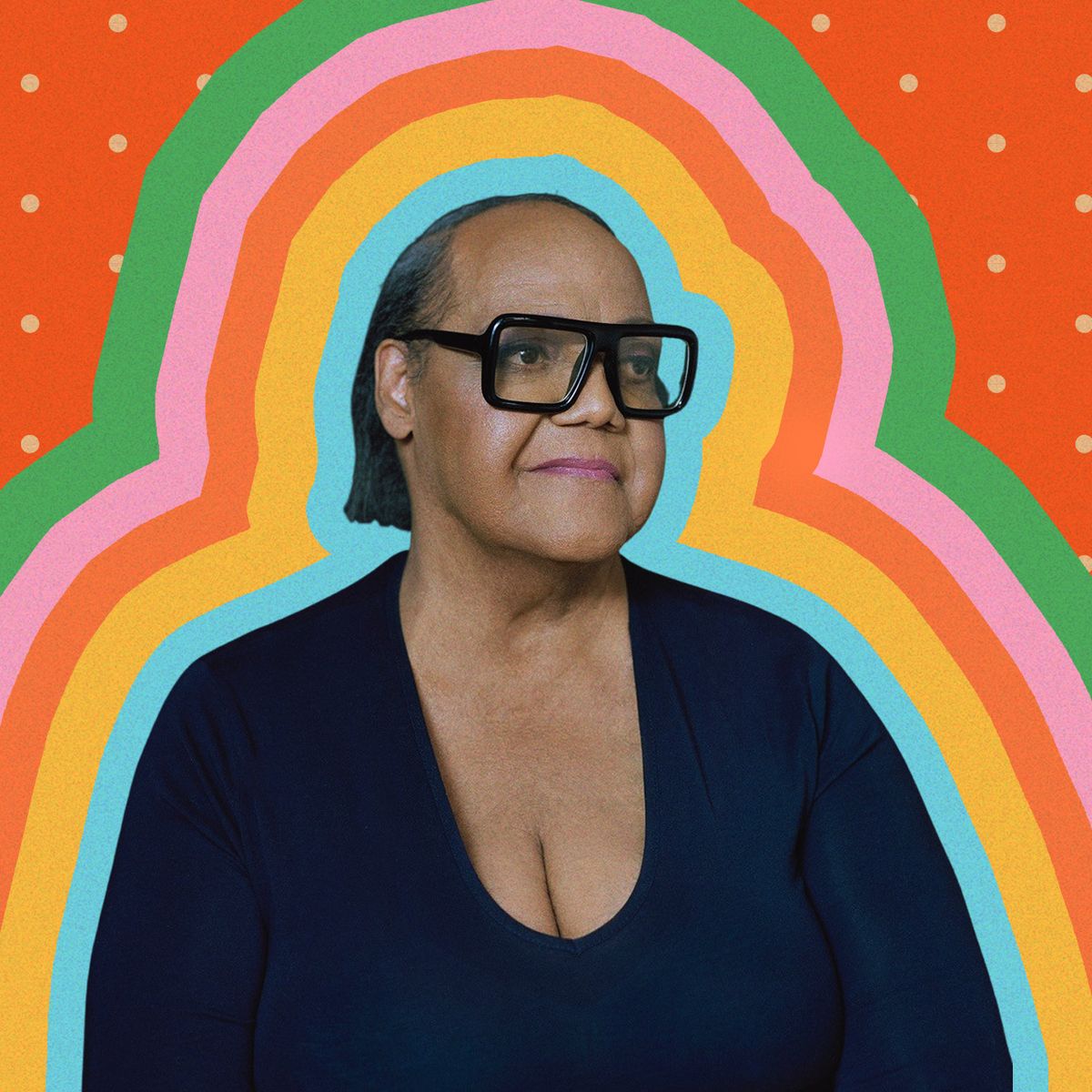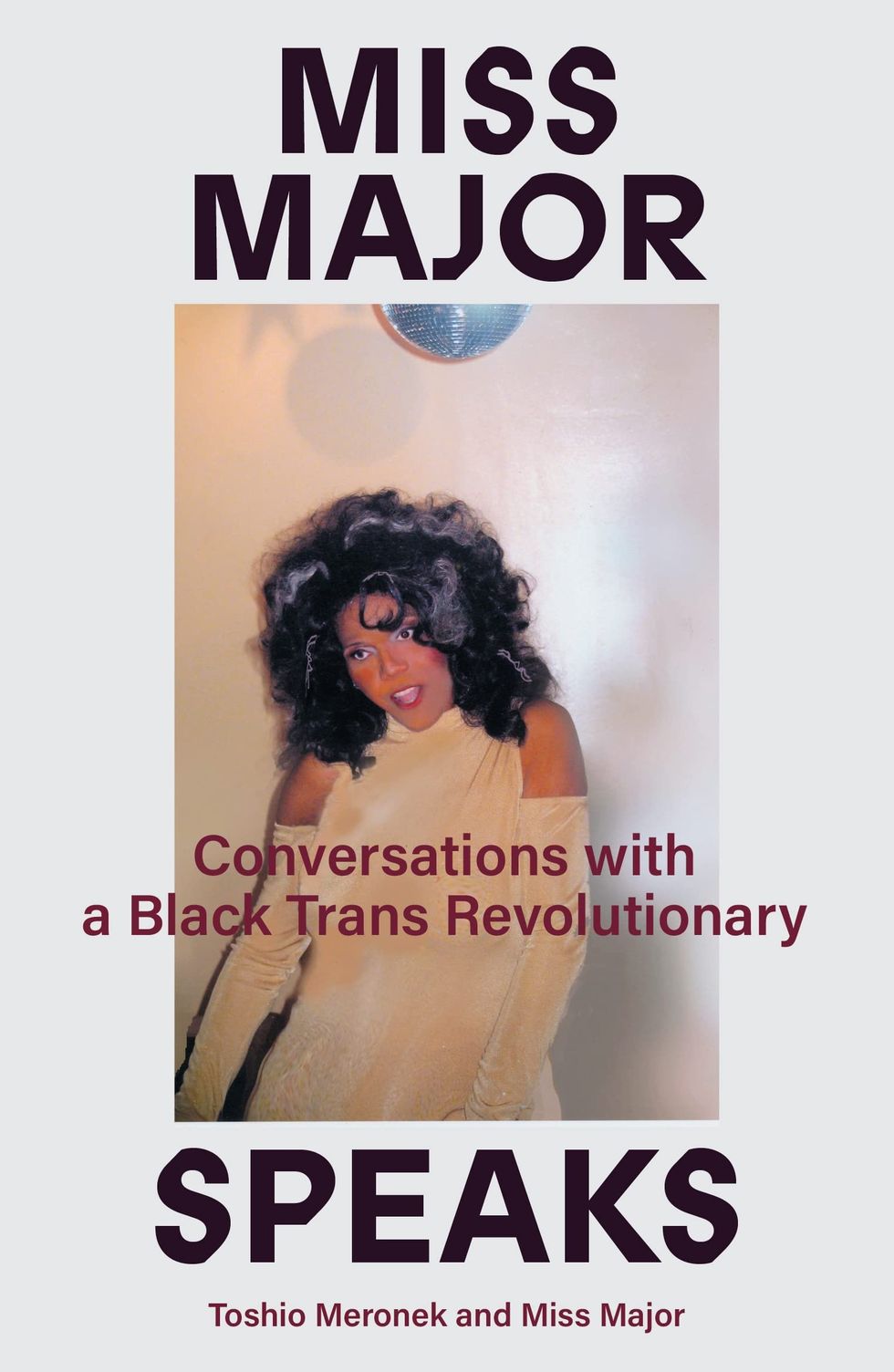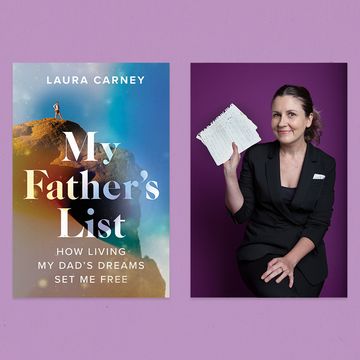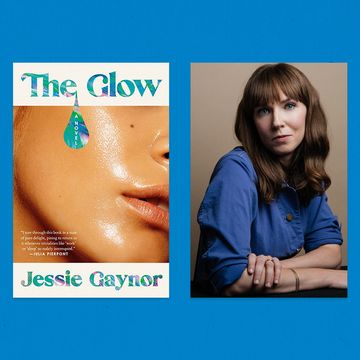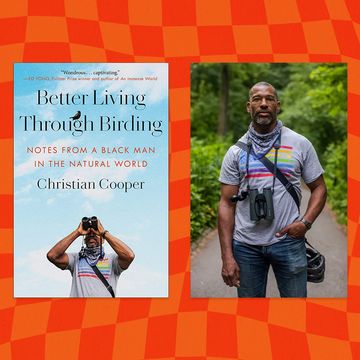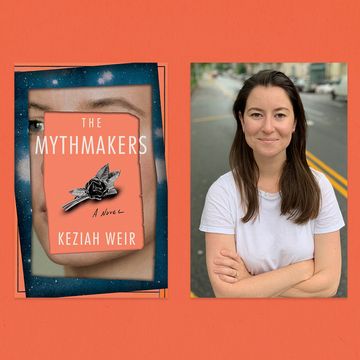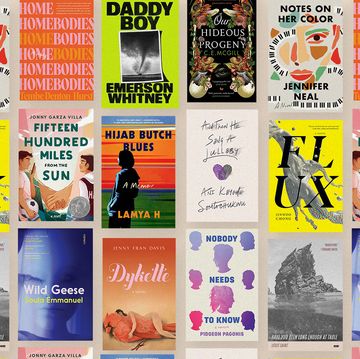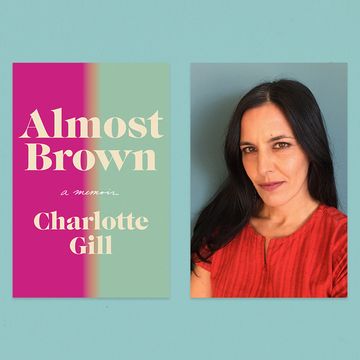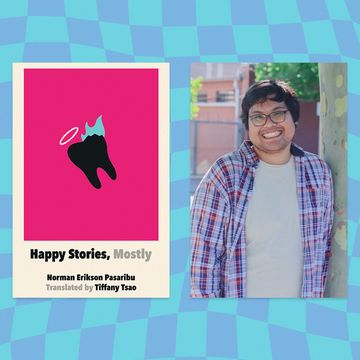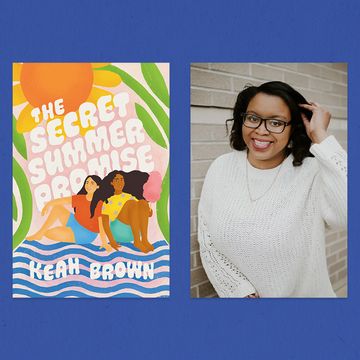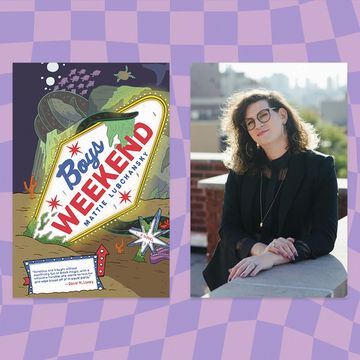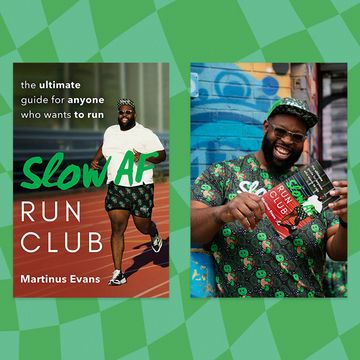Miss Major Griffin-Gracy is an icon in the LGBTQ+ community. She has fought for transgender rights for more than 50 years. The 82-year-old activist and writer uplifts trans women of color, especially those who have survived police brutality and incarceration.
Miss Major was on the front lines of the Stonewall Uprising and was even incarcerated, and her new book details her survival story. Her memoir, Miss Major Speaks: Conversations With a Black Trans Revolutionary, which was released on May 16, is an oral history of her exciting but tumultuous life. The book, formatted as a Q&A interview with writer Toshio Meronek, celebrates Miss Major’s triumphs in life while also detailing her struggles, including living through the HIV/AIDS crisis, her life as a sex worker, and surviving Dannemora prison and the Bellevue psychiatric hospital.
As a queer activist for more than six decades, mainly on the front lines of trans liberation, Miss Major is releasing her book at a critical time when trans rights are being threatened across the country and the world. She is known within the trans community as a mother figure who has taken care of trans youth, especially those who were abandoned by their families. As she writes in her new book: “What I do is love and care for my community, whoever they are. And if I can’t get to them, hopefully there’s somebody I know who can help them.”
Miss Major speaks with Shondaland about her new book, activism, and Pride Month from her home in Little Rock, Arkansas.
NADJA SAYEJ: Are you excited about the success of your new book?
MISS MAJOR: I am just thrilled. I didn’t think it would be that much. I’m happy. As I’ve gotten older, I’ve thought to myself — who listens to older people?
NS: Older people have wisdom, no?
MM: Yes, but kids don’t listen to it. You know?
NS: You have been a mother figure to a lot of people in the trans community. Is that right? They reach out to you for safety and wisdom?
MM: Yes, that’s right. It started years ago. I was in my 30s. A couple of girls asked me if they could call me “mother.” I was so touched, it brought me to tears. Some grow with you; some don’t.
NS: What is one super-valuable lesson of wisdom you have learned?
MM: To stay calm, because if I get upset, they get upset, and that’s not pretty. It’s not easy to do, dear.
NS: You wrote this book in collaboration with a journalist named Toshio Meronek. What was it like doing the interview that we read in the pages?
MM: It was done all over. He recorded me talking to different people at different times, different places. It was just different conversations. It was born out of friendship. Toshio was my former assistant.
NS: It’s June, so it’s Pride Month. How do you feel about that?
MM: They didn’t pay attention to us when we were doing our thing; we were running amok. Now, some people know the reason for Pride Month; most don’t know the real story. It has gotten so mechanical, even the police are involved. I don’t go to it.
NS: What was the Jewel Box, the Baltimore nightclub you performed at back in the day, like?
MM: Oh! That was fun. It was exciting and different. It got me out of Chicago and got me involved in a different space. It was a little scary at first, but I found a girlfriend there, and it was all right. It was filled with all kinds of music, and I came down the steps to “You Are So Beautiful” by Joe Cocker.
NS: One of my favorite quotes in the book is this: “I didn’t get to 80 years old being sweet and gentle. I’m no flower. F--k that. I’m a cactus — get over it.” Is it just that you don’t care what other people think?
MM: [Laughs] I don’t care what other people think. I don’t. Why should I care? It’s the way it is.
NS: You also mention in the book that many activists today are doing so from the comfort of their own homes on Twitter. You say you have to get up and get out. Are people lazier now?
MM: The internet is making people lazier. I do things myself. Twitter is way past what a person needs to do. It takes away your motive of doing it. Because you care. It makes it very unemotional. They don’t really care. That’s bad for everyone.
NS: What does the future hold for the trans movement, which you have been fighting for over the past 50 years?
MM: It’s funny; there are these new laws coming in, these anti-trans laws. We have been through that before. What do they want us to do? Go back and live like it is the 1950s? I’m not going back to that. We did it [fight against injustice] once; we will do it again. They need to back up 10 feet and let us do our vibes. Let us live.
NS: Has there been progress?
MM: There has been some. But it’s not full circle. That’s very disappointing. I have been fighting for trans rights my whole life. And now they want to go back.
NS: In the book, you mention the LGBTQ+ community waking up by seeing the Ryan Murphy series Pose. Can you believe people learned about the 1980s AIDS epidemic through that TV show?
MM: Oh, God. That was some show. They didn’t know. That show didn’t even show you what it was like being transgender. They had women — and I know times change; people change — but there were scenes that were not truthful enough. If you’re going to put it on TV, it should be truthful.
NS: What was unrealistic about Pose?
MM: When a girl in the show went to the school to speak up for the boy who was going to school there, people didn’t listen to us. We go anywhere, and they question why we are there, who this boy is, and look around for what we are going to take. People listened to her as if she were a real mother. That’s not the same. I thought it would be more realistic than it was.
NS: What’s it like living in Little Rock, Arkansas?
MM: It’s quiet, quieter than California. I moved here so I could help the girls who live here get things for themselves that the girls in California have. It’s just respect. Let us live. Don’t put all these pressures on us.
NS: What’s your favorite place in the world?
MM: I love Little Rock; it’s quiet and useful. I get to rest. I’m on a magazine cover here — isn’t that a shock?
NS: Are you getting more attention than you did before?
MM: It’s here today; it could be gone tomorrow. It’s whatever. It’s good so the youth know they can reach me.
NS: What is one major highlight of your career?
MM: I haven’t had it yet. I want something that would be earth-shattering or mind-blowing. So, you have to keep going until you get it.
NS: What was it like living in New York during the Stonewall Uprising?
MM: In the 1960s, New York was in its heyday. Everyone got dressed up to go out at night. Everyone did wonderful things there. You could spend an evening in each area. It was really exciting. You were glad to be there. In New York, anything is possible. At that time, you could do it all — as long as you avoided the police. That was the problem everywhere. They had a tendency to burst the bubble you had. I haven’t been back in New York for 10 years, but it has changed.
NS: What advice do you have for the youth today?
MM: Keep your guard up, and no matter who it is, be prepared to fight, fight, fight. If you don’t fight now, you’ll have to fight later. Nothing and no one is better than you. You are unique unto yourself. Everyone is different, and everyone gets treated the same. Nobody gets thrown under the bus.
Nadja Sayej is an arts and culture journalist based in New York City who has written 5 books, including Biennale Bitch and The Celebrity Interview Book.
Get Shondaland directly in your inbox: SUBSCRIBE TODAY
